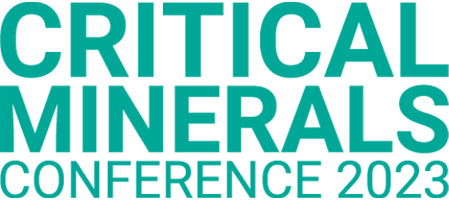Conference panels
Conference panels

Panel 2: Critical Minerals Supply Chain
Day 2, Session 5
Following the publication of a report entitled “Critical Raw Materials for Strategic Technologies and Sectors in the EU - A Foresight Study” based on research commissioned by the European Commission (EC), the President of the EC, Ursula von der Leyen said in 2021: "Green and digital technologies currently depend on a number of scarce raw materials. We import lithium for electric cars, platinum to produce clean hydrogen, silicon metal for solar panels. 98% of the rare earth elements we need come from a single supplier: China. This is not sustainable. So we must diversify our supply chains” (European Raw Material Alliance, 2021).
Similarly in the USA, a combined report released in 2021 from the Departments of Commerce, Energy, Defence, Health and Human Services raised concerns about supply chain vulnerabilities for critical minerals, semi-conductors and batteries. The recommendations from the report encouraged a massive investment in domestic clean energy manufacturing, strengthened international trade rules and engagement with “like-minded allies” to decrease vulnerabilities (Deese & Sullivan, 2021). In 2022 this transformed into the Inflation Reduction Act.
The sentiments expressed in the European Union and the USA show a concern about access to critical raw materials for a global energy transition but also about domestic economic development from the massive investment in clean technologies required by Europe and the US to meet their climate goals. This panel discussion will examine the complexities of increasing production of critical minerals required for a global energy transition, at the same time as navigating the geopolitical complexities of diversifying supply chains for ‘friend-shoring’.
We will ask if it is possible:
- to resist the pull of securing off-take agreements from existing supply chains through China, despite Europe’s and the US stated objectives;
- to meet shareholder expectations AND geopolitical security requirements AND climate objectives by seeking to supply to multiple supply chains – if not, which objective will win out;
- for governments in Europe and the USA to incentivise “like-minded allies” to build new supply chains;
- for Australian governments to maintain good relations with China, India, Europe and the USA during a critical minerals arms race.
